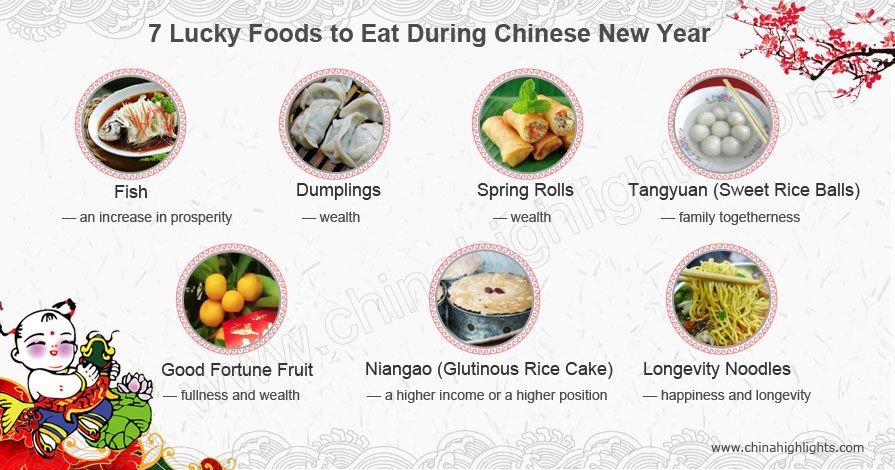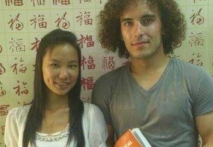Latest News
- Wuxi's Nanchang Street--a historic cultural district that combines classical charm, delicious food, and fun activities
- chinese study
- lastest courses
- Business Assistance/International Consortium of Stem Cell Research
- Foreigner's view of Jiangsu -Changzhou Jintan starts
- estimonials for Our new French Internship student Anais 企业表扬信
- The Double Seventh Festival in China Introduction
- Chinese Proficiency Test (HSK)
- China University Mining and Technology
- Wuxi Library
Students Say
Mandarin Student Zack
Mandarin Education School is a great place to learn Chinese and Chinese Culture.I've learned a lot in this school, my Chine...
Learn Chinese Travel China
If you want to learn Chinese and also discover China, Mandarin Education organize the most funny and cultural study tour.
The...
suzhou Mandarin Jude
I am Jude, I am learning Mandarin in Suzhou Mandarin School,I was learning in Wuxi Mandarin Education too.I like my Chinse Teacher...
chinese class
Improve your reading, speaking and your writing by experiencing our teaching methods,Offer free student Visa.
...
Wuxi Mandarin Jessie
I've learned Chinese for almost 8 years, I can understand what Chinese people say,but when I speak, I feel very uncomfor...
Chinese Internship or Jobs
You are looking for a professional experience abroad? Get the opportunity to discover the Chinese business,Look for an ...
Mandarinedu Student Florent
I love my Wuxi Mandarin Education School. It is the EASY MANDARIN Learning way, I am learning faster than I wanted.My teach...
Mandarin E Learning
Mandarin Education School offers you Online Chinese Courses. It has never been so easier to have Chinese courses ...
Mandarin Student Brad
I am studying Chinese in Mandarin Education School. I can speak quit good Chinese and talk to Chinese people by myself. Thank...
Wuxi Mandarin edu. Student Jennifer
I love learning Chinese in Mandarin Education School.That's a great place to learn and make friends.
...
Add Our School Official
to get more informations

0086 1866 1199 988
0086 510-81151808
Sandy.Swun
519988808
Mandarin Education School
Room 405, 4 Fl,Building No.8,
Maoye Business Center,
Chang jiang No.1,
New district , Wuxi City , China

Certain dishes are eaten during the Chinese New Year for their symbolic meaning. Lucky food is served during the 16-day festival season, especially New Year's Eve, which is believed to bring good luck for the coming year. The auspicious symbolism of these traditional Chinese New Year foods is based on their pronunciations or appearance.
Not only do the dishes themselves matter, but also the preparation, and ways of serving and eating mean a lot.
The most common Chinese New Year foods includes dumplings, fish, spring rolls, and niangao. We've rounded up 7 essential Chinese, or Lunar, New Year dishes, and included the symbolism behind them all.
1. Fish — an Increase in Prosperity
In Chinese, "fish" (鱼Yú/yoo/) sounds like 'surplus'. Fish is a tradtional Chinese New Year dish. Chinese people always like to have a surplus at the end of the year, because they think if they have managed to save something at the end of the year, then they can make more in the next year.
Steamed fish is one of the most famous Chinese New Year recipes. What fish should be chosen for the New Year dinner is based on auspicious homophonics.
· Crucian carp: As the first character of 'crucian carp' (鲫鱼jìyú/jee-yoo/) sounds like the Chinese word 吉(jí/jee/ 'good luck'), eating crucian carp is considered to bring good luck for the next year.
· Chinese mud carp: The first part of the Chinese for "mud carp" (鲤鱼lǐyú/lee-yoo/) is pronounced like the word for gifts (礼lǐ/lee/). So Chinese people think eating mud carp during the Chinese New Year symbolizes wishing for good fortune.
· Catfish: The Chinese for "catfish" (鲶鱼niányú/nyen-yoo/) sounds like 年余(nián yú) meaning 'year surplus'. So eating catfish is a wish for a surplus in the year.
· Eating two fish, one on New Year's Eve and one on New Year's Day, (if written in a certain way) sounds like a wish for a surplus year-after-year.
· If only one catfish is eaten, eating the upper part of the fish on New Year's Eve and the remainder on the first day of the new year can be spoken with the same homophonic meaning.
2. Chinese Dumplings — Wealth
With a history of more than 1,800 years, dumplings (饺子Jiǎozi /jyaoww-dzrr/) are a classic Chinese food, and a traditional dish eaten on Chinese New Year's Eve, widely popular in China, especially in North China.
Chinese dumplings can be made to look like Chinese silver ingots (which are not bars, but boat-shaped, oval, and turned up at the two ends). Legend has it that the more dumplings you eat during the New Year celebrations, the more money you can make in the New Year.
Dumplings generally consist of minced meat and finely-chopped vegetables wrapped in a thin and elastic dough skin. Popular fillings are minced pork, diced shrimp, fish, ground chicken, beef, and vegetables. They can be cooked by boiling, steaming, frying or baking.
How they're made:Almost all Chinese people can make dumplings. First they mix the dough, second make the dough into round "wrappers" with a rolling pin, third fill the wrappers with stuffing, fourth pinch the "wrapper" together into the desired shape, and fifth cook them.
3. Spring Rolls — Wealth
Spring rolls (春卷Chūnjuǎn /chwnn- jwen/) get their name because they are traditionally eaten during the Spring Festival. It is a dish especially popular in East China: Jiangxi, Jiangsu, Shanghai, Fujian, Guangzhou, Shenzhen, Hong Kong, etc.
Spring rolls are a Cantonese dim sum dish of cylindrical-shaped rolls filled with vegetables, meat, or something sweet. Fillings are wrapped in thin dough wrappers, then fried, when the spring rolls are given their golden-yellow color.
Lucky Saying for Eating Spring Rolls
黄金万两(hwung-jin wan-lyang/): 'A ton of gold' (because fried spring rolls look like gold bars) —a wish for prosperity.
4. Glutinous Rice Cake — a Higher Income or Position
Glutinous rice cake (年糕Niángāo /nyen-gaoww/) is a traditional Chinese New Year recipe. In Chinese, glutinous rice cake sounds like it means "'getting higher year-on- by year"'. In Chinese people's minds, this means the higher you are the more prosperous your business is a general improvement in life. The main ingredients of niangao are sticky rice, sugar, chestnuts, Chinese dates, and lotus leaves.
Lucky Saying for Eating Niangao
年年高(niánnián gāo /nyen-nyen gaoww/): 'Getting higher year-after-year by year', can imply children's height, rise in business success, better grades in study, promotions at work, etc.
5. Sweet Rice Balls — Family Togetherness
Sweet rice ball (汤圆Tāngyuán /tung-ywen/) is the main food for China's Lantern Festival, however, in south China, people eat them throughout the Spring Festival. The pronunciation and round shape of tangyuan are associated with reunion and being together. That's why they are favored by the Chinese during the New Year celebrations.
Lucky Sayings for Eating Tangyuan
团团圆圆(Tuántuán yuányuán /twann-twann ywen-ywen/ 'group-group round-round'): Happy (family) reunion!
6. Longevity Noodles — Happiness and Longevity
Longevity noodles (长寿面Chángshòu Miàn /chung-show myen/) unsurprisingly symbolize a wish for longevity. Their length and unsevered preparation are also symbolic of the eater's life.
They are longer than normal noodles and uncut, either fried and served on a plate, or boiled and served in a bowl with their broth.
7. Good Fortune Fruit — Fullness and Wealth
Certain fruits are eaten during the Chinese New Year period, such as tangerines and oranges, and pomeloes. They are selected as they are particularly round and "golden" in color, symbolizing fullness and wealth, but more obviously for the lucky sound they bring when spoken.
Eating and displaying tangerines and oranges is believed to bring good luck and fortune due to their pronunciation, and even writing. The Chinese for orange (and tangerine) is 橙(chéng /chnng/), which sounds the same as the Chinese for 'success' (成). One of the ways of writing tangerine (桔jú/jyoo/) contains the Chinese character for luck (吉jí/jee/).
Eating pomeloes/shaddocks is thought to bring continuous prosperity. The more you eat, the more wealth it will bring, as the traditional saying goes. The Chinese for pomelo (柚yòu /yo/) sounds like 'to have' (有yǒu), except for the tone, and exactly like 'again' (又yòu).










